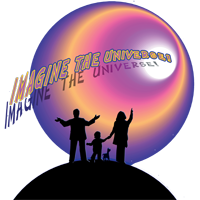Different Flavors of Jobs at GSFC's ASD
It takes a lot of different people working together to explore the Universe
Civil Servant
Contractor
Post Doctoral Research Associate
"Goddard scientists who are Civil Servants are employed directly by the U.S. Government, just like Social Security clerks, FBI investigators, and IRS agents. Our job is to explore the Universe on behalf of the U.S. taxpayer, and then tell the public what we have found. We are acutely aware that we work for the people and have a responsibility to let the U.S. citizens know what they are getting for their money.
"Being a Civil Servant is one of those "good news" and "bad news" situations. As a job, a Civil Service position is fairly secure, has reasonably good pay, and offers pretty good benefits like health plans and retirement. On the other hand, it means dealing with bureaucracies that can be cumbersome and being subject to political conflicts that sometimes cause sudden and unexpected changes, especially in budgets. I have had to miss important scientific meetings because of Government shut-downs or shortfalls in the travel budget.
"At Goddard, there is not much distinction among scientists who have different employers -- we all work toward the same scientific goals." -- Dr. David Thompson, NASA/GSFC
"Goddard scientists who work for contractors are employed by a company which has a contract with the government to do specific tasks. Unlike tasks relating to many other jobs, scientific research is a bit hard to quantify. While it is easy to say, "You will build 100 airplanes for the government for $X" It is harder to say "You will support this mission for $X". What is the value of a new scientific discovery? How do you measure if the support is good or bad? You can usually tell a good airplane from a bad one.
"In the Astrophysics Science Division (ASD) there is not a lot of distinction between the contractors and the civil-servants. We all work together toward the same goals. The only one that really affects my job is that I can't sign approval forms, while civil-servants can.
"The contract that my company works under will expire in September 2000. After that time, depending upon who wins the new contract, I may either be working for the same company at the same job, have to change companies and loose seniority to keep the same job, or look for another job." -- Michael Arida, Raytheon ITSS
Contractors at GSFC's Laboratory for High-Energy Astrophysics include:
- Universities Space Research Associates (USRA)
"Scientists employed by the Universities Space Research Association (USRA) at NASA/GSFC work side by side with their Civil Service colleagues to analyze and interpret data from astronomical satellites, balloon instruments, and ground-based observatories. Although formally a "contractor" outfit, USRA differs from other contractors by being a nonprofit corporation, with the specific 'mission' of furthering research into space science and technology. This way, America's space program gets a continuing source of fresh ideas and new thinkers, and university researchers gain access to the cutting-edge progress at NASA.
"The USRA scientists at NASA do not have 'tenure' in the same way as, say, a university professor or a Civil Servant. Some have 'tours of duty' at NASA/GSFC limited to a few years, while others can take on sizeable programmatic responsibilities. However, one compensation for the lack of direct job security can be a freedom from some of the more administrative aspects of life at GSFC. At Goddard, USRA scientists make major contributions to science research, community support of active astronomy missions, and public education and outreach." -- Dr. Alan Smale, USRA
- Raytheon
"Raytheon Information and Technical Science Services (ITSS), formerly Hughes STX, formerly STX, primarily provides support for the scientific research ongoing in the lab. What was once a small minority-owned contract company has merged several times in recent years and is now part of the huge conglomerate, Raytheon. Some of the tasks that Raytheon contractors fill are: programmers, developing software used in interpreting satellite data; technicians; education and outreach developers; and research scientists." -- Michael Arida, Raytheon ITSS.
- University of Maryland
"Scientists at GSFC are also employed by the University of Maryland through a cooperative agreement between NASA and UMd. These scientists have the status of research faculty in the Astronomy Department with a promotion track parallel to the teaching (tenured) faculty. Research faculty can supervise PhD students and can volunteer to teach both undergraduate and graduate level classes. They have access to all University of Maryland facilities, both academic and recreational, in addition to having access to GSFC resources available to research scientists. As employees of the State of Maryland, research faculty share in the state's medical and pension benefits." -- Dr. Keith Arnaud, UMD
- National Research Council
"NRC (National Research Council) post-doctoral associates are scientists who got their Ph.D. recently and work on two-year contracts for NASA or other national laboratories. NRC research associateships are one of the most respected post-doctoral positions in the US. The position can be defined as: ``self-employed by the National Academy of Sciences''; workplace: NASA center (such as Goddard Space Flight Center). NRC is a sub-ordinate of the National Academy of Sciences which is a U.S. Government Agency, and NRC associates pay tax as self-employed individuals. Office space, computers, etc., are provided by the host laboratory. The advantage of this associateship is that we write a research proposal, and if the proposal promises important results in science, the NRC provides financial support for us to carry out the research. That gives us freedom to chose our project. Also, we have the copyright on our scientific work. The disadvantage of it is that it is very competitive, and not permanent (after two years, we are looking for another job!). Also, we are not allowed to work for any other employer, so that we can devote our full energy to scientific research. Which we scientists are happy to do." -- Dr. Sandor Molnar, NRC postdoc


